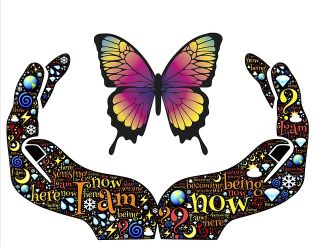Friends
Romanticizing the Past Makes Us Feel Bad about the Present
How distorted memories of the past can become a source of suffering
Posted August 21, 2013

My life changed dramatically in 2001 when I became chronically ill and had to give up a career that I loved. Although I've adjusted to my new life, I can still find myself romanticizing the past.
When I do this, I convince myself that before I got sick, my life was perfect: working as a law professor was always fulfilling; my family life was everything I could wish for.
Was all of this true? No! Being a law professor was difficult at times, and although I enjoyed most of my students, occasionally one could be unpleasant. My family life was definitely good, but it could be stressful at times.
No, life wasn't perfect before I got sick. It had its share of easy times and tough times, of successes and disappointments. When I find myself putting that "old" life on a pedestal and thinking that it was perfect, I try to remember that this is a romanticized view of the past that serves only to make me feel bad about the present.
We also tend to assume that other eras were better than ours. In his NBC newscast of April 8, 2013, Brian Williams began his report on the death of Annette Funicello by wistfully referring to the 1950s as "a sweeter era, one of genuine innocence." I don’t think so. Not only was that the era of Red baiting, but in those "sweet and innocent" 1950s, in many places in the U.S., it would have been a crime for my two children to marry the people they fell in love with because those two people happen to be of different races than my children.
My favorite era is the 60s: rock and roll, flower power, love love love. But recently, I saw a story on television about Birmingham, Alabama in 1963. How could I have forgotten that police used hoses and police dogs to stop children from peacefully marching to protest segregation? (The children had to march by themselves because their parents had been told they’d lose their jobs if they participated, even during off-work hours.) The footage in the story showed children being knocked to the ground by high-powered hoses and bitten at by police dogs. I won’t be forgetting that day in 1963 again.
And then there were earlier eras when people died of diseases that we’re protected against by popping a pill or getting a vaccination. My mother-in-law had a close friend who grew up in the 1930s. Many years ago, she told me that at the first sign of sniffles in the winter, her parents wouldn’t let her play outside until spring, They didn’t want to take a chance that the sniffles would turn into bronchitis or some other kind of bacterial infection, for which, today, we’d just take an antibiotic.
***
A few months ago, my husband was out of town, so I had to go to the pharmacy on my own to refill a prescription. I ran into a friend whom I haven’t seen for about ten years. We embraced and found a place to sit and then chatted for about fifteen minutes, catching up on news about our families and our mutual friends.
When I got home, I was overcome with sadness over this lost friendship. As I do when I recognize that I’m dissatisfied and unhappy, I looked for the source of my misery in some kind of frustrated desire (a technique I call “the tracing exercise” in my book How to Wake Up). I “traced” until I found that place where I wasn’t getting what I wanted. And there it was: I wanted this friendship to be as wonderful as it once had been.
At that point, I realized that this friendship had never been the way I was fantasizing it to have been in the past. She and I mostly saw each other because we had a few friends in common. We were never close. And yet, there I was, mocking up a distorted memory of the past—and then feeling miserable about it!
So it’s good to remember that life is a mixed bag in every era and in every decade, and not to allow romanticizing the past ruin the life you have now.
© 2013 Toni Bernhard. Thank you for reading my work. I'm the author of three books:
How to Live Well with Chronic Pain and Illness: A Mindful Guide (2015)
How to Wake Up: A Buddhist-Inspired Guide to Navigating Joy and Sorrow (2013)
All of my books are available in audio format from Amazon, audible.com, and iTunes.
Visit www.tonibernhard.com for more information and buying options.
Using the envelope icon, you can email this piece to others. I'm active on Facebook, Pinterest, and Twitter.
You might also like "You Can't Fix Everything."




